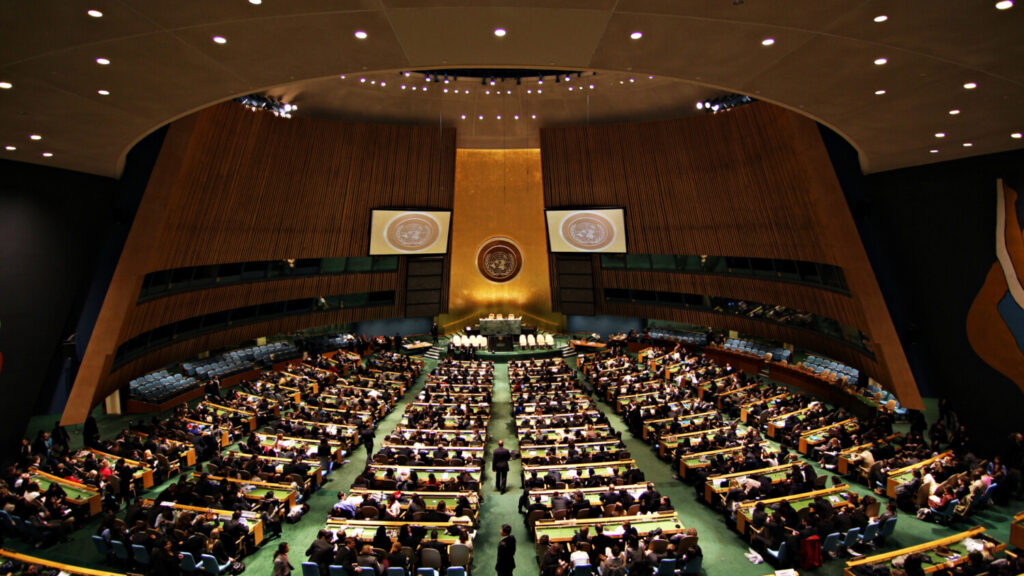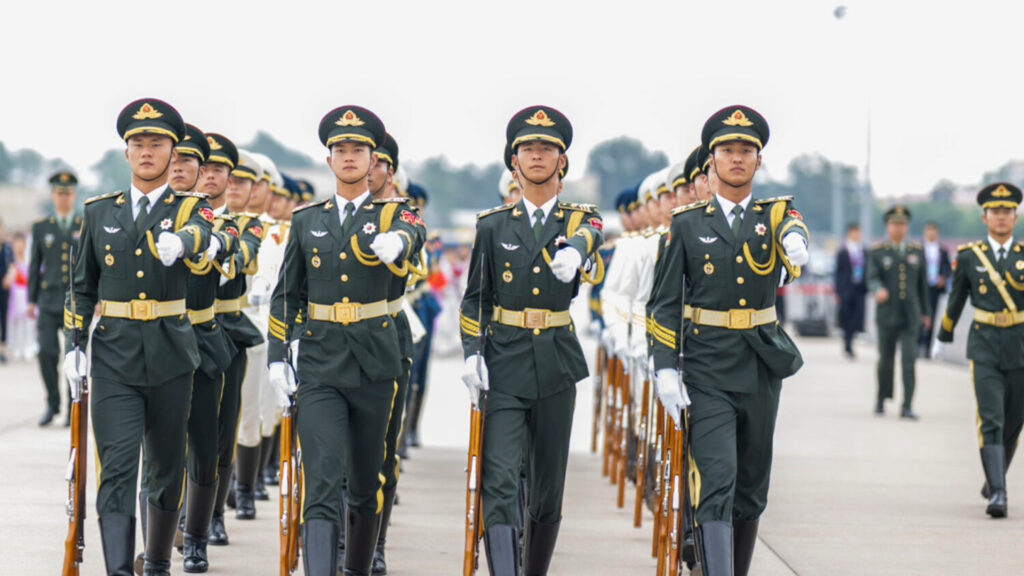Israel-Iran: On Which Side Will Azerbaijan Fall?
Azerbaijan represents an interesting crux within the geopolitics of West Asia and the Caucasus, as a state with vast hydrocarbon resources, large diasporas in both Turkey and Iran, and, perhaps most impact fully, longstanding ties and trade with Israel. Indeed, sources have found that the recent military successes of the state in the Nagorno-Karabakh region were significantly aided by imported Israeli arms (Debre, 2023; Smith, 2024) (with some help too from the Turkish (Iddon, 2024)). This relationship has been somewhat of an outlier in international politics for some time: a majority Shi’ite nation favouring the Israeli state over Shi’ite neighbours, indeed over what would seem to be the regional hegemony (Russia). Despite vast international criticism (Gouliev, 2025), these ties seem to have only been entrenched further since the outbreak of the conflict in Israel-Palestine. The attacks between Israel and Iran represent a new test for the relationship, though, as states worldwide are expected to ‘pick sides’ in the conflict. So far, Azerbaijan has enjoyed the more ‘covert’ nature of the relationship (Phillips, 2024). This article will analyse the persistence of relations so far, and thus see if they would be expected to continue, given recent developments.
Energy-Arms Trade Axis
In spite of its status as the sole Muslim-majority nation within the Caucasus and its general support for the Palestinian cause, historic ties between Azerbaijan and Israel have been rather amicable (Ismayilov, 2013). In 1991, Israel became one of the first nations to formally recognise the state of Azerbaijan, and Azerbaijan likewise was amongst the first Muslim nations to recognise the Israeli state, with diplomatic ties beginning officially in 1992 (Azertac, 2007). Relations have only grown closer in the last decade (Traub et al., 2024), and in 2022, Azerbaijan became the first Shi’ite-majority nation to open an embassy in the Jewish state (The Times of Israel, 2022). What purpose has this alliance served?

The primary axis around which the alliance revolves is that of the energy-arms trade between the states: Baku is Israel’s main supplier of oil (Geybullayeva, 2024), and, with Kazakhstan, provides up to 60% of Israel’s needs (Cafiero, 2023); Tel Aviv repays the favour with advanced arms (Sarwari, 2024; Sassounian, 2023; Scharaf & Yaron, 2023; Scharaf, 2023).
As can be seen, in the period shown, as Tel-Aviv became more reliant on crude oil exports from Azerbaijan, Israel became steadily more essential to arming the Azeri state. This is generally a direct correlation, and an energy-arms deal that has existed for some time. It has also persisted past the war in Gaza, as evidence shows (despite doctored export records and consternation from the Turks) that oil exportation from Baku has continued (Schmil & Scharf, 2025; Middle East Eye, 2025). The Azerbaijan State Oil Company (SOCAR) has recently managed to obtain 10% exploration rights for the Tamar gas field off the northern coast of Israel, along with BP, and the Israeli company NewMed (Khalilova, 2025). This offers closer ties, but also a mediatory position between Turkey and Israel, as Ankara has the opportunity to import gas from the field, while protecting itself from critics of Israel by importing it from an Azeri enterprise (Rettig, 2025).
The gap in time between the opening of mutual embassies does offer an insight into the Azeri state’s mindset, as Israel opened theirs in Baku in 1992, with Azerbaijan only opening theirs in 2022. Similarly to the Turks, the Azeris have preferred to maintain far more covert ties with the Israelis over previous decades (Göksel, 2015). This goes some way to explaining the recent Trump administration push for Azerbaijan to be brought into the Abraham Accords (Mammadli, 2025; Mamedov, 2025), as a more explicit endorsement of the right of Israeli existence. While Baku have seemed to prefer attempting to reap some benefits without the potential consequences of an overt partnership, in recent times, they have conducted relations more openly. Baku’s energy exports to Europe and Israel have made it a critical player in Western energy diversification, especially as Europe seeks alternatives to Russian and Middle Eastern sources. This economic interdependence subtly nudges Azerbaijan closer to the Western-Israeli axis.
Iran as the ‘Great Enemy’
Traditionally, analysis has revolved around the idea of a ‘common enemy’, Iran, enabling this cross-regional union (Bisku, 2009; Hanjing, 2019; Grinberg, 2023). Thus, the alliance would counter any hostility from Iran toward either nation. This is somewhat of a misnomer, though – Traub et al. argue that the recent growing ties between the two states can hardly be explained by this, as Iran was a similar threat before 2010 as it was after (Traub et al., 2024, p. 2). Iran’s true threat to Israel, and vice versa, is well covered in other articles, but the Iran-Azerbaijan relationship is far more complicated than merely an antagonistic dynamic.
On the Azeri side, tensions largely stemmed from the 90’s, when Iran pursued an official policy of neutrality in the first Nagorno-Karabakh conflict, whilst tacitly supporting Armenia economically (Cornell, 2015; Hakala, 1998; Vatanka, 2013). However, the Iranians also set up and maintained eight refugee camps within Azerbaijan itself during the conflict (Rajaee, 2000). President Aliyev previously stated that he supported US sanctions against Iran (Helgesen, 2010). Since then, Iranian politicians have regularly claimed that Azerbaijan to merely an Israeli proxy on their border (Qaidari, 2021). Importantly, though, figures on the ethnic population of Iran also have almost a quarter of the population being of Azeri Turkic descent (Beck, 2014). The incumbent president of Iran, Masoud Pezeshkian, is of partly Azeri descent, speaks fluent Azeri and represented the majority Azeri region of East Azerbaijan (which, despite its name, is a Western region of Iran) for 20 years in the parliament before entering office (Sharifi, 2024). The tensions of late can most easily be put down to developing ties with Israel.
The media narrative is important in framing the true extent of the hostilities. Recent Israeli sources have claimed that Iran-Azerbaijan tensions have only increased, and have seemed to claim, to any Azeri audience they have, that the danger posed by Iran is higher than ever (Grinberg, 2023; Grinberg 2024). Iranian state sources have countered this by arguing that “enemies” were attempting to disrupt ties of “friendship and brotherhood” between Azerbaijan and Iran (Press TV, 2025). The truth, as you maybe would expect, is somewhere in between. Normalisation between the two states is certainly closer than it has been for some time, but preemptive arguments that it is ‘on the horizon’ (Isayev, 2023) or that relations are ‘back to normal’ (Mammadov, 2024) are jumping the gun somewhat, for the time being.
Conclusion
Iran and Azerbaijan in the past two years have certainly made progress toward normalising relations. The reopening of the Azerbaijani embassy in Tehran last year was a positive step (RadioFreeEurope, 2024), and negotiations, begun by President Raisi prior to his death (Tehran Times, 2024), have continued into the Pezeshkian administration, as the new President visited Baku earlier this year (France24, 2025; Boltuc, 2025). However, the real ‘closeness’ of these relations is often overblown and trumpeted by sources close to both the Azeri and Iranian states, while independent Azeri (Mammadov, 2025) or outside sources (Avdaliani, 2024) seem to be far more sceptical. Pragmatism, not ideology, shapes Azerbaijan’s geopolitical calculus. Baku will be reluctant to publicly back either party, even if its geopolitical interests are closer in line with Israel’s. Rather, it will keep using its economic and geopolitical significance to strike a careful balance, benefiting from its alliance with Israel without provoking war with Iran. This balancing act is not without risks. Should the Israel-Iran conflict escalate further, Azerbaijan may face retaliatory threats from Tehran or pressure from Western allies to take a firmer stance. Its ability to navigate this tightrope will depend on the skill of its diplomacy and the evolving regional power dynamics.
Baku, for their part, condemned the recent Israeli strikes and (perhaps even more importantly) stated that they would not allow their territory to be used for any form of third-party attacks (Abbassoy, 2025). However, Iran remains highly suspicious of their northern neighbours. One of the most valued benefits of the Israel-Azerbaijan alliance for Baku is the potential to endear themselves to the US through proxy approaches: recent efforts have been made by the Israelis on this front (Jerusalem Post, 2025; Cropsey & Epstein, 2025), and it has long been a stated objective of the Caucasus nation (Zarifian, 2014; Geist Pinfold & Peters, 2021). The Iranians have been wary of this for some time, with the Americans long regarded as strictly “enemies” (Frantz, 2001). Nonetheless, the core distrust centres on the Israeli relationship, as arms and energy exports between the nations have steadily increased, and there have previously been reports of permits allowing the Israeli military to operate on Azerbaijani territory (Perry, 2012), claims that Azerbaijan fervently denies (Lumsden, 2022).
Azerbaijan is wary of appearing overly supportive of Israel’s latest military efforts, remaining as cautious in their support as they have always been. However, given the rapid development of their relationship with Iran, their closest ally within the conflict remains Israel by some distance. Despite cautious messaging, they certainly seem to value the Israeli-American partnership more than their natural religious, cultural, and ethnic allies in Iran.
Bibliography
Abbassoy, A., ‘Between Rock and Hard Place: Azerbaijan factor in Iran-Israel tensions’, Modern Diplomacy, 20 June 2025
Avdaliani, E., ‘Best Friends Forever? Iran Tries Rapprochement’, Center for European Policy Analysis, 15 August 2024
Azertac, ‘AZERBAIJAN, ISRAEL: RELATIONS TURN 15’, 19 June 2007, available at https://azertag.az/en/xeber/azerbaijan_israel_relations_turn_15-570875 [accessed 13/6/25]
Beck, L., ‘Iran’s Ethnic, Religious and Tribal Minorities’, in Potter, L. G. (ed.), Sectarian Politics in the Persian Gulf (New York, 2014), pp. 245-324
Bishku, M. B. (2009), ‘The South Caucasus Republics and Israel’, Middle Eastern Studies, 45(2), 295–314
Boltuc, S., ‘Pezeshkian’s Official Visit to Baku and Iran-Azerbaijan Relations’, Special Eurasia, 29 April 2025
Cornell, S. E., Azerbaijan Since Independence (Abingdon, 2015)
Cropsey, S., Epstein, J., ‘Azerbaijan Is Israel’s New Friend in the Muslim World’, Wall Street Journal, 14 March 2025
Debre, I, ‘Israeli weapons quietly helped Azerbaijan retake Nagorno-Karabakh — sources, data’, The Times of Israel, 5 October 2023
France24, ‘Iranian president visits Azerbaijan as ties warm’, France24, 28 April 2025
Frantz, D., ‘Iran and Azerbaijan Argue Over Caspian’s Riches’, The New York Times, 30 August 2001
Geist Pinfold, R., Peters, J. (2021), ‘The Limits of Israel’s Periphery Doctrine: Lessons From the Caucasus and Central Asia’, Mediterranean Politics, 26(1), 25-49
Geybullayeva, A., ‘Azerbaijan’s silence over Gaza is not surprising’, Osservatorio Balcani e Caucaso Transeuropa, 12 December 2024
Gouliev, Z., ‘Baku’s Tightrope: How Azerbaijan Navigates Its Relationship With Israel’, EA Worldview, 5 January 2025
Grinberg, A., ‘Iran’s proxy war against Azerbaijan’, The Jerusalem Institute for Strategy and Security, 26 June 2023
Grinberg, A., ‘Iranian Subversion Tools in the South Caucasus’, The Jerusalem Institute for Strategy and Security, 18 July 2024
Hakala, T. (1998), ‘The OSCE Minsk Process: A Balance after Five Years’, The Helsinki Monitor, 9(1), 5-14
Hanjing, Y. (2022), ‘Recent Tensions Between Iran and Azerbaijan: Manifestations, Causes and Developments’, Scholars Journal of Arts, Humanities and Social Sciences, 10(2), 52–60
Helgesen, J., ‘Statoil Gets Slammed for Iran Support’, Stavanger Aftenblad, 29 November 2010
Iddon, P., ‘Turkey And Israel Upgrade Azerbaijan’s Russian Military Hardware’, Forbes, 9 October 2024
Isayev, H., ‘Azerbaijan-Iran normalization on the horizon’, Eurasia Net, 10 October 2023
Ismayilov, E., ‘Israel and Azerbaijan: The Evolution of a Strategic Partnership’, Israel Journal of Foreign Affairs, 7(1), 69-76
Jerusalem Post Staff, ‘Israel seeks to remove sanctions in ‘strategic alliance’ with Azerbaijan’, Jerusalem Post, 6 March 2025
Khalilova, A., ‘Azerbaijan and Israel strengthen ties with gas exploration deal’, Euro News, 19 March 2025
Lumsden, ‘Media Guide: Iran and the Armenia-Azerbaijan Conflict’, American Iranian Council, 13 December 2022
Mamedov, E., ‘Azerbaijan is already friendly with Israel. Why the push to ‘normalize’?’, Responsible Statecraft, 24 March 2025
Mammadli, R., ‘Azerbaijan in the Abraham Accords: A new phase in Baku’s alliance with Israel?’, The New Arab, 22 April 2025
Mammadov, M., ‘Are Azerbaijan and Iran on a collision course?’, Topchubasov Center, 10 January 2025
Mammadov, M. ‘Opinion: The tangled tale of Iran-Azerbaijan relations’, CommonSpace.Eu, 11 May 2024
Middle East Eye, ‘Azerbaijan maintains oil sales to Israel despite Turkish backlash, says report’, Middle East Eye, 9 June 2025
Perry, M., ‘Israel’s Secret Staging Ground’, Foreign Policy, 28 March 2012 Phillips, C., ‘Azerbaijan: Israel’s quiet friend’, Middle East Eye, 25 June 2024
Press TV, ‘Iran’s top security official warns of enemies’ plots to disrupt ties with Azerbaijan’, Press TV, 2 February 2025
Rajaee, B., ‘The Politics of Refugee Policy in Post-Revolutionary Iran’, Middle East Journal, 54(1), 44-63
Radio Free Europe, ‘Azerbaijan Reopens Embassy In Iranian Capital Following Deadly Attack’, Radio Free Europe/Radio Liberty, 15 July 2024
Rettig, Dr. A., ‘Azerbaijan’s Entry into Israeli Waters May Open New Export Routes with Turkey’, The Begin-Sadat Center for Strategic Studies, 9 April 2025
Sarwari, H., ‘Azerbaijan’s Strategic Partnership with Israel’, S2J News, 25 June 2024
Sassounian, H., ‘Israel’s Massive Supply of Sophisticated Weapons to Azerbaijan’, Armenian Weekly, 8 March 2023
Scharaf, A., ‘Azerbaijan Tests Advanced Israeli Missile, Cargo Flights Spike, as Nagorno-Karabakh Tensions Mount’, Haaretz, 13 September 2023
Scharaf, A., Yaron, O., ‘92 Flights From Israeli Base Reveal Arms Exports to Azerbaijan’, Tekeyan Cultural Association of Armenia, 10 March 2023
Schmil, D., Scharf A., ‘Official Data Shows Azerbaijan Stopped Exporting Oil to Israel. The Truth Is a Little Different’, Haaretz, 4 June 2025
Sharifi, K., ‘Who Is Masud Pezeshkian, Iran’s President-Elect?’, Radio Free Europe/Radio Liberty, 6 July 2024
Smith, A., ‘A Comprehensive Overview of Israeli Arms Exports to Azerbaijan’, The California Courier, 24 December 2024
Tehran Times, ‘Iran-Azerbaijan: ‘unshakable friendship’ beyond borders’, Tehran Times, 20 May 2024
The Time of Israel Staff, ‘Azerbaijan to open embassy in Israel, the first Muslim Shi’ite country to do so’, The Times of Israel, 18 November 2022
Traub, D., Cohen, R. A., Kertcher, C. (2024), ‘Azerbaijan’s foreign policy strategy towards Israel: a realist alliance and a neoliberal knowledge-based economy cooperation, 2011–2022’, Cogent Arts and Humanities, 11(1)
Vatanka, A., ‘Tangle in the Caucasus: Iran and Israel Fight for Influence in Azerbaijan’, Foreign Affairs, 15 January 2013
Zarifian, J. (2014), ‘The Armenian-American Lobby and its Impact on US Foreign Policy’, Society, 51(5), 503–512



